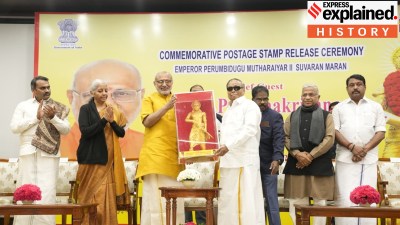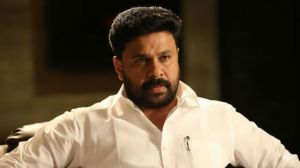The visit of Sri Lanka’s President Anura Kumara Dissanayake to India this week — his first trip overseas since becoming leader of his country — saw some classic diplomatic deal-making, with give and take on both sides.
AKD, as he is popularly known, committed to not allowing the use of Sri Lankan territory for any anti-Indian activities.

“I have given an assurance to the Prime Minister…that we will not have our land…used in…a manner that is detrimental to the interest of India,” Dissanayake said after bilateral talks with Prime Minister Narendra Modi on Monday.
The joint statement said “President Disanayake reiterated Sri Lanka’s stated position of not permitting its territory to be used in any manner inimical to the security of India as well as towards regional stability.”
This was a signal to China — whose “research vessels” frequently visit Sri Lanka, and are seen with suspicion in New Delhi. The fact that the President, who is seen as being pro-China, has clearly articulated this position is a relief to India.
On the issue of Tamil minorities, however, AKD did not yield to the formulation preferred by New Delhi. There was no explicit mention of the implementation of the 13th amendment in the Sri Lankan Constitution, which gives powers to the Tamil minority — a long-standing demand of the Indian government. AKD does not support the implementation of the amendment, and has opposed any investigation into alleged war crimes during the last phase of the civil war between the Liberation Tigers of Tamil Eelam (LTTE) and the Sri Lankan military.
Modi said the two leaders had discussed “reconciliation and reconstruction” in Sri Lanka, and hoped that the Sri Lankan government would “fully implement the Constitution and fulfil its commitment to hold provincial council elections”.
Story continues below this ad
AKD, on his part, mentioned unity, social protection, and sustainable development. “Diversity”, he said, is the “cornerstone of democracy”.
Confident President
The joint statement suggested that the new establishment in Sri Lanka had got its way in its framing.
About two months ago, after External Affairs Minister S Jaishankar met AKD in Colombo, the Indian statement had said that Jaishankar reiterated India’s support for the aspirations of all communities, including Tamils, for equality, justice, dignity, and peace, while maintaining the unity, territorial integrity, and sovereignty of Sri Lanka.
“The full and effective implementation of the 13th Amendment…and the early holding of Provincial Council elections would facilitate these objectives,” it had said.
Story continues below this ad
Two and a half months later, AKD — emboldened by the historic parliamentary majority in the November election — is much more confident in his dealings with big powers such as India and China.
This confidence has been visible in the President’s actions at home as well, where he has appeared determined to abide by the anti-corruption principles of the “Clean Sri Lanka” campaign that propelled him to power.
A case in point was the controversy, days before the President travelled to India, about the academic qualifications of his close political ally, Speaker Asoka Ranwala. The senior member of AKD’s Janatha Vimukthi Peramuna (JVP) was forced to step down after AKD made a thinly-veiled reference to the party’s intolerance for even the appearance of impropriety.
Focus on mutual benefits
The message from the Ranwala incident was that the President wanted no distractions as he went about his difficult and ambitious agenda to rebuild Sri Lanka after the social and economic crises of recent years. That focus was visible in the India-Sri Lanka joint statement, “Fostering Partnerships for a Shared Future”.
Story continues below this ad
On bilateral development cooperation, the joint statement said the two leaders acknowledged the “positive and impactful role of India’s development assistance to Sri Lanka that has significantly contributed to its socioeconomic growth”.
The countries agreed to work together for the timely completion of ongoing projects such as Phase III & IV of Indian Housing Project, the three islands’ Hybrid Renewable Energy Project, and High Impact Community Development Projects across Sri Lanka.
The elements of cooperation range from digital connectivity — the Aadhaar project and UPI — to energy cooperation. The countries are discussing the supply of LNG to Sri Lanka, the development of Trincomalee as a regional energy and industrial hub, high-capacity power grid interconnection, and the development of offshore wind power in the Palk Strait.
On physical connectivity, apart from the resumption of the passenger ferry service between Nagapattinam and Kankesanthurai, the two leaders agreed that officials should work towards the early recommencement of the passenger ferry service between Rameswaram and Talaimannar. They will also explore the possibility of working on the rehabilitation of Sri Lanka’s Kankesanthurai port.
Story continues below this ad
It was also agreed to “explore the possibility of concluding a framework Agreement on Defence Cooperation”, provision of “defence platforms and assets to augment Sri Lanka’s defence capabilities”, and intensify collaboration through joint exercises, maritime surveillance, and defence dialogue and exchanges, according to the joint statement.
PM Modi flagged the importance of maritime security, cyber security and counter-terrorism among the issues to be discussed through the Colombo Security Conclave mechanism.
All of this suggests that even though India is now no longer dealing with the traditional set of interlocutors who have dominated Sri Lankan governments, priorities and interests have not fundamentally changed for either New Delhi or Colombo.
AKD is looking at a consequential five years in power, while India, which has deep strategic stakes in Sri Lanka’s success and stability, is keen on a “mutually beneficial” partnership.








































